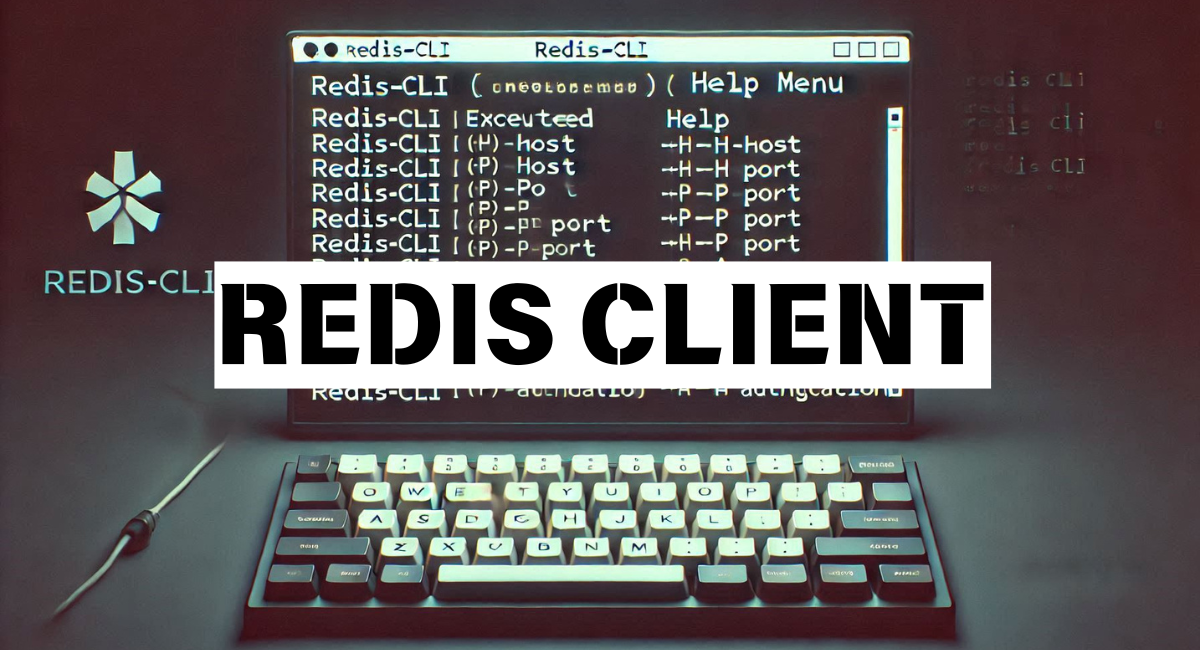Redis - Client
Redis - Client
Redis Client
Difference between redis-cli scan, redis-cli --scan, and redis-cli keys:
| Command | redis-cli keys | redis-cli scan | redis-cli --scan |
|---|---|---|---|
| Function | Fetches all keys matching a pattern | Iteratively scans keys in batches | Shortcut for SCAN to list all keys |
| Blocking/Non-Blocking | Blocking (can affect Redis performance) | Non-blocking (safe for production) | Non-blocking (safe for production) |
| Performance | Slow on large datasets | Fast and efficient for large datasets | Fast and efficient for large datasets |
| Use Case | Small datasets or quick lookups | Large datasets, production-safe | Large datasets, user-friendly |
| Cursor Handling | Not applicable | You need to manually manage the cursor | Cursor handled automatically |
| Pattern Matching | Supports patterns | Supports patterns | Supports patterns |
Redis Patterns Use Glob-Style Matching, Not Regular Expressions
- The
-scancommand with-patternuses glob-style pattern matching, which is simpler than regular expressions. - Redis expects patterns with wildcards like:
?: Matches a single character.- ``: Matches zero or more characters.
[abc]: Matches any character within the brackets.
Example of Valid Patterns:
"key*": Matches all keys starting with “key”."??abc": Matches keys with exactly 2 characters before “abc”."user[0-9]*": Matches keys starting with “user” followed by a number.
If Regex is Necessary
- Redis itself doesn’t support regex for
SCAN. However, you can filter results using external tools likegrepor use scripting (e.g., in Python). Example using
grepto filter keys matching the regex:1
redis-cli --scan | grep -P '^([a-zA-Z0-9]){7}$'
Explanation:
redis-cli --scan: Retrieves keys from Redis.grep -E '^([a-zA-Z0-9]){7}$': Filters results to match the regex.
redis-cli --scan examples
Populate some keys
1 2 3 4 5 6 7 8 9 10 11 12 13 14 15 16 17 18 19 20 21 22 23 24 25 26 27 28 29 30 31 32 33 34 35 36 37
127.0.0.1:6379> debug populate 10 user:id OK 127.0.0.1:6379> keys * 1) "user:id:6" 2) "user:id:7" 3) "user:id:2" 4) "user:id:3" 5) "user:id:0" 6) "user:id:5" 7) "user:id:9" 8) "user:id:8" 9) "user:id:4" 10) "user:id:1" 127.0.0.1:6379> debug populate 10 employee:id OK 127.0.0.1:6379> keys * 1) "user:id:6" 2) "user:id:7" 3) "user:id:2" 4) "employee:id:9" 5) "employee:id:8" 6) "user:id:3" 7) "user:id:0" 8) "employee:id:5" 9) "user:id:5" 10) "employee:id:4" 11) "user:id:9" 12) "employee:id:0" 13) "user:id:8" 14) "employee:id:1" 15) "employee:id:3" 16) "employee:id:7" 17) "employee:id:2" 18) "user:id:1" 19) "user:id:4" 20) "employee:id:6" 127.0.0.1:6379> quit
Bulk delete keys using pipe based on pattern
1 2 3 4
❯ redis-cli --scan --pattern "employee:id*" | awk '{print "UNLINK " $0}' | redis-cli --pipe All data transferred. Waiting for the last reply... Last reply received from server. errors: 0, replies: 10
Bulk get keys
1 2 3 4 5 6 7 8 9 10 11 12 13 14
❯ for key in $(redis-cli --scan --pattern "user:id*"); do echo "${key} $(redis-cli GET ${key})" done user:id:6 value:6 user:id:3 value:3 user:id:8 value:8 user:id:1 value:1 user:id:4 value:4 user:id:7 value:7 user:id:0 value:0 user:id:2 value:2 user:id:9 value:9 user:id:5 value:5
This post is licensed under CC BY 4.0 by the author.
